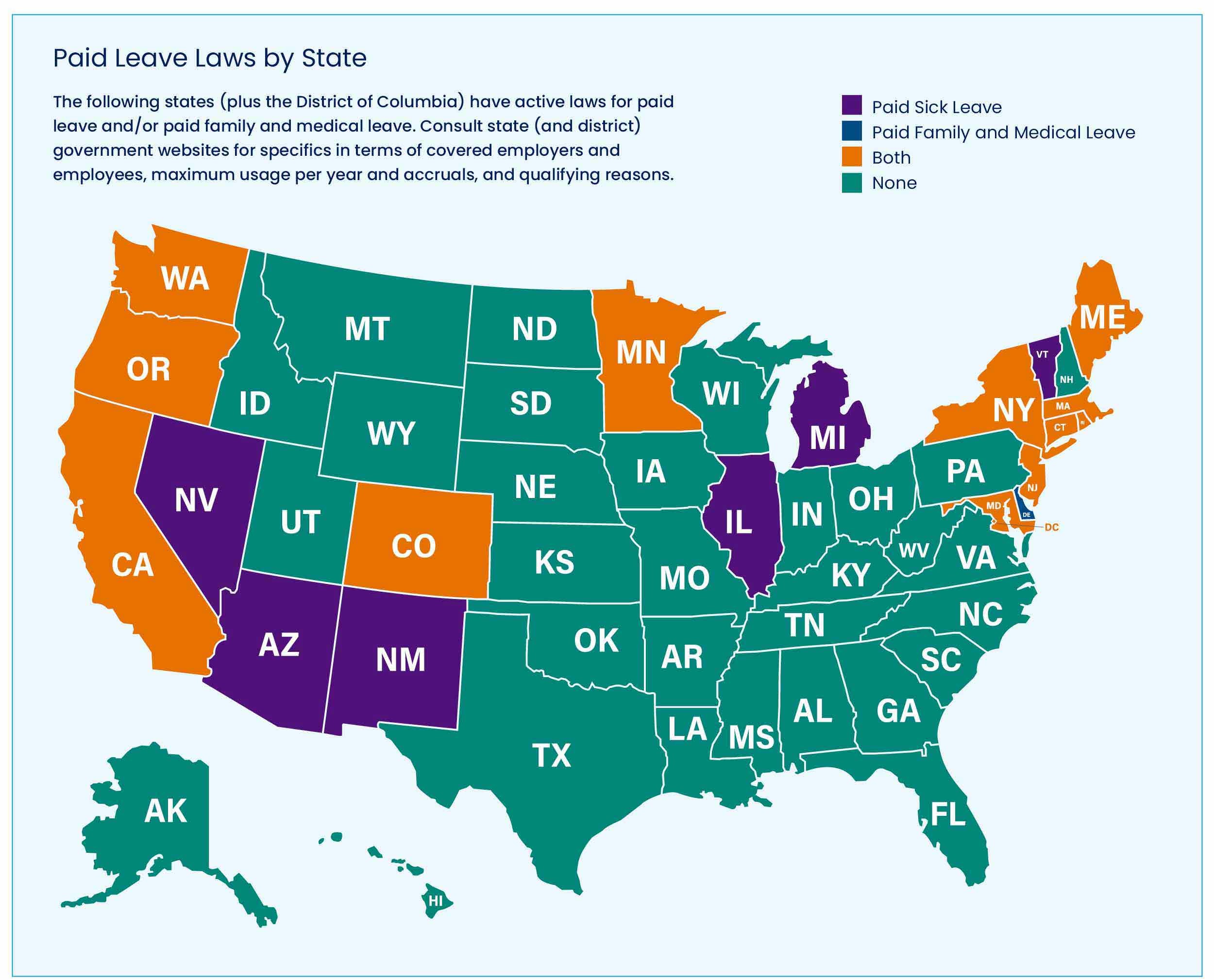- Connecticut updated its paid sick leave laws. The recently signed legislation will cover nearly all employees in that state by Jan. 1, 2027.
- Originating law was the first of its kind. In 2011, Connecticut became the first state to pass a paid sick leave law for private-sector employers.
- Related laws are trending. Eighteen states plus Washington, D.C., have active paid sick leave laws, and additional states are taking up the issue.
Connecticut Gov. Ned Lamont recently signed legislation that expands the state’s paid sick leave laws to include coverage for nearly every employee in the state by the start of 2027.
Connecticut’s previous paid sick days laws (which go back to 2011, when the state became the first to pass a related law for private-sector employers) required employers with more than 50 employees in, for the most part, specific retail and service occupations (e.g., food service workers, healthcare workers) to provide their employees with up to 40 hours of paid sick leave annually.
The new legislation, signed on May 28, amplifies this coverage to include more workers in two ways:
- Beginning Jan. 1, 2025, these laws will apply to workers of nearly every occupation, not just those in retail and service jobs. (Seasonal employees and other certain temporary workers are exempt.)
- The threshold for coverage will be lowered in three phases, beginning with employers that have at least 25 employees on Jan. 1, 2025; those with at least 11 employees beginning Jan. 1, 2026; and those with at least one employee beginning Jan. 1, 2027.
Additionally, this legislation broadens the definition of who qualifies as a family member when a worker wants to use paid sick days to care for a loved one to include those “other than that person’s own minor children,” which is a limitation under the previously established laws. It also expands the reasons why an employee may use paid sick leave to include instances related to the declaration of a public health emergency.
“Our existing paid sick days laws include important protections for certain workers; however, there are broad categories left unprotected, and this update will expand this coverage to help ensure that people do not have to choose between going to work sick and sacrificing a day’s wage,” Gov. Lamont said in a press release. “Given what we just experienced during the recent outbreak of a viral pandemic, it’s appropriate that we take a look at our paid sick days laws and evaluate how they are working and how they can be strengthened.”
Paid Sick Leave Laws Are Trending
The Connecticut law expansion comes on the heels of new paid sick leave laws that went into effect in Illinois (Jan. 1, 2024) and Minnesota (Jan. 1, 2024, and amended on May 24, 2024).
Additional states with active paid sick leave laws include Arizona, California, Colorado, Maine, Maryland, Massachusetts, Michigan, Nevada, New Jersey, New Mexico, New York, Oregon, Rhode Island, Vermont and Washington. (Washington, D.C., also has laws covering paid sick leave.)
In addition, advocates in Alaska, Nebraska and Missouri are pushing to put paid sick time initiatives on the ballot for this fall.
While there are currently no federal legal requirements for paid sick leave, the Family and Medical Leave Act (FMLA) does require covered organizations to provide unpaid sick leave.
The following graphic identifies the states (plus Washington, D.C.) that currently have paid sick leave laws as well as those that have laws for paid family and medical leave.

Editor’s Note: Additional Content
For more information and resources related to this article, see the pages below, which offer quick access to all WorldatWork content on these topics:




